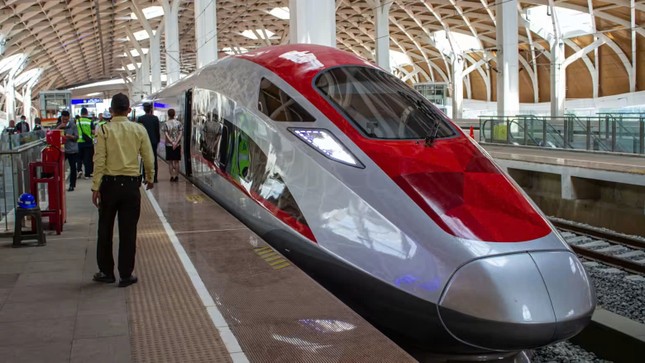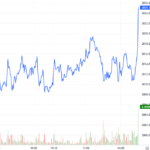Slashing Airfare by 60-70% with High-Speed Rail?
In the preliminary report on the investment policy for the North-South high-speed rail project, the Economic Committee assessed that the project, once operational, would significantly impact the efficiency of short-haul flights like Hanoi-Vinh and Ho Chi Minh City-Nha Trang due to its competitive travel time, ticket prices, and other advantages. This will likely affect the future development of airports.
The Committee noted suggestions to further clarify the feasibility and effectiveness of setting ticket prices at 60-70% of the average airfare charged by airlines operating on the same route. They also recommended a comparison of the proposed pricing with similar high-speed rail projects globally, considering that Vietnam has yet to master the technology and will need to import and invest in many items, potentially leading to higher ticket prices than anticipated.

Suggestions were made to clarify the feasibility and effectiveness of setting high-speed rail ticket prices at 60-70% of average airfares. Illustration: Getty.
It was also proposed to conduct a more comprehensive evaluation of the project’s financial plan during the operation and exploitation phase, considering the overall demand for public investment capital. Additionally, international experience in organizing, operating, and exploiting high-speed rail lines should be included.
Previously, in the draft report on the pre-feasibility study for the North-South high-speed rail project, to ensure affordability and attract passengers, tickets were proposed to be divided into three price levels corresponding to different classes of accommodation.
These levels were determined based on the average ticket prices of Vietnam Airlines and Vietjet, the two largest domestic airlines. Specifically, each kilometer of first-class travel is expected to cost 0.18 USD (4,470 VND), second class 0.074 USD (1,830 VND), and third class 0.044 USD (1,090 VND).

Proposed pricing for the North-South high-speed rail project in Vietnam. Illustration: Internet
According to calculations shared with Tien Phong , for the Hanoi-Ho Chi Minh City route, first-class tickets would cost approximately 6.8 million VND, second-class 2.8 million VND, and third-class 1.6 million VND. When compared to other forms of transportation, these prices are considered competitive and reasonable.
High-Speed Rail Ticket Prices in Other Countries
According to surveys by Tien Phong , the fastest train in the world is currently the Beijing-Shanghai high-speed train in China, with a maximum speed of 350 km/h (217 mph).
On Chinese websites for booking high-speed train tickets, such as 12306 China Railway, Trip.com, and Travel China Guide, there are around 44 daily trains from Beijing to Shanghai and 42 trains from Shanghai to Beijing, completing the 1,318 km (819 miles) journey in 4.5 to 6.5 hours at a speed of 350 km/h. These trains mainly operate between Beijing South Railway Station and Shanghai Hongqiao Railway Station. Additionally, there are three overnight train options with a travel time of about 12 hours.


Current ticket prices for high-speed trains in China. Illustration: Loc Lien.
At present, tickets for the G-train, a daytime high-speed train from Beijing to Shanghai, cost 553-671 CNY (78-95 USD, or 1.97-2.4 million VND) for a second-class seat, 1,748-2,344 CNY (248-332 USD, or 6.15-8.3 million VND) for a business-class seat, 930-1,073 CNY (132-152 USD, or 3.3-3.8 million VND) for a first-class seat, and 553-671 CNY (78-95 USD, or 1.97-2.4 million VND) for a second-class seat on the D-train, an overnight train.
In Taiwan, high-speed rail tickets are also divided into two classes: standard and business. On the 345 km (214 miles) route from Nan Gang to Tso Ying, standard-class tickets cost 1,530 TWD (1.2 million VND), while business-class tickets are priced at 2,500 TWD (1.97 million VND), equivalent to 0.14 USD/km (3,530 VND) and 0.23 USD/km (5,810 VND), respectively.

High-speed rail in Taiwan from Nan Gang to Tso Ying. Photo: Loc Lien.
In Japan, the Shinkansen is one of the most modern and famous high-speed rail systems in the world, with a maximum speed of 320 km/h (199 mph) and inaugurated in 1964. It connects major cities across Japan, including Tokyo, Osaka, Kyoto, and Fukuoka.















